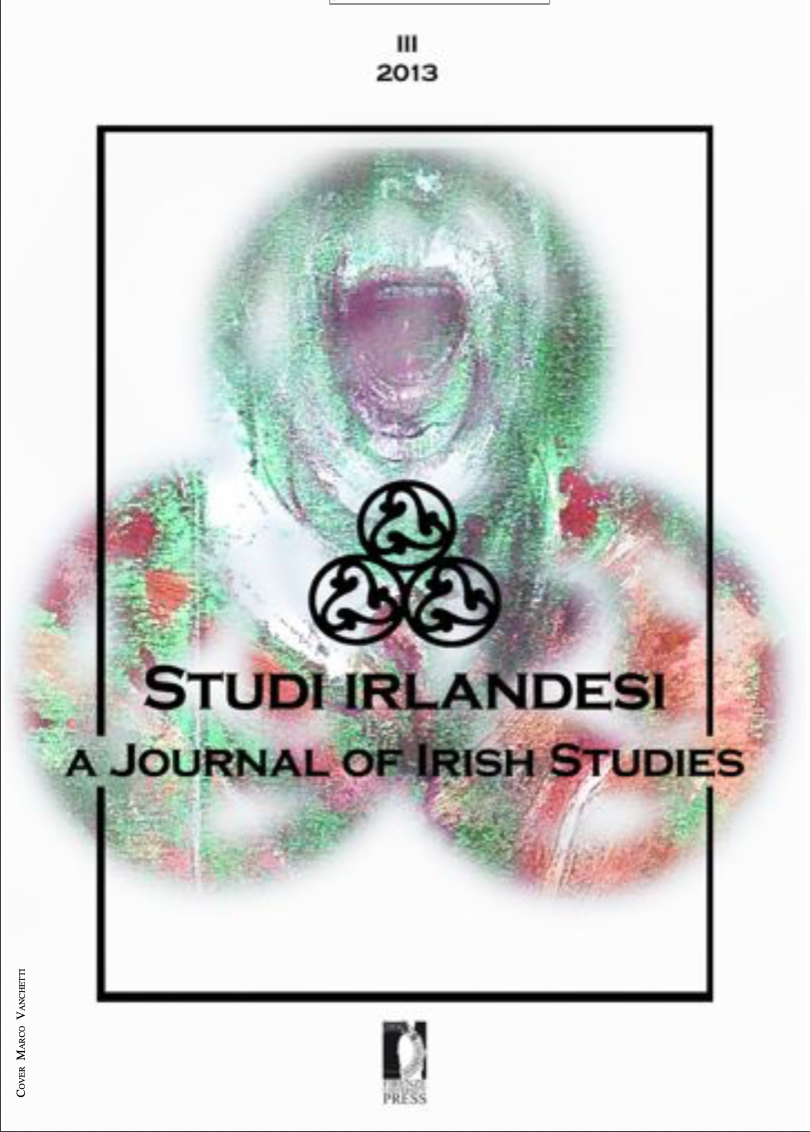Against the Oedipal Politics of Formation in Edna O’Brien’s "A Pagan Place": “Women do not Count, Neither Shall they be Counted”
Published 2013-12-30
How to Cite
Abstract
Edna O’Brien’s A Pagan Place is one of her lesser-known novels, which discusses decades of women’s sexual oppression and anomalous formations; it is a sexually conscious narrative of an Irish formation which enjoyed the socio-cultural and intellectual liberties of the “sexy sixties”, and critiqued the Oedipal Irish society of the 1930s and 1940s. Obsessed with physical and spiritual decency, the masculinized Society formed “moral codes” that by definition exiled the Irish woman to social and political marginalia. Socio-politically conscious narratives such as O’Brien’s A Pagan Place, however, functioned as not just social critiques, drawing on a culture of post-revolution stasis and neoconservative identity politics but also as vehicles for enabling a generation of oppressed women to voice their concerns and struggles with their feminine formation in a dominantly masculinized Society. By drawing on a Deleuzian definition of Oedipal Society, this study explores boundaries, limitations and alternatives of feminine formation in Ireland in the 1930s and 1940s.


